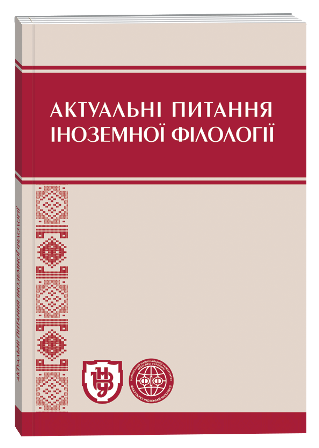ПИТАННЯ ДОСЛІДЖЕНЬ РОЛІ ІНТЕРНЕТ ФОЛЬКЛОРУ В СУЧАСНІЙ КОМУНІКАЦІЇ
DOI:
https://doi.org/10.32782/2410-0927-2025-22-5Ключові слова:
Інтернет комунікація, Інтернет спільноти, Інтернет фольклор, Інтернет форум, Інтернет лінгвістика, метод спрощення, онлайн комунікація, фольклорні жанри, фольклорні елементиАнотація
Дослідження Інтернет фольклору є досить новою галуззю досліджень, яка починаючи з кінця двадцятого століття вивчає способи використання фольклорних одиниць у цифрову епоху. Основна увага науковців у вивченні функціонування сучасного фольклору у цифровому форматі приділена аналізу традиційних фольклорних жанрів з новим контентом, вивченню субкультури в онлайн комунікації, дослідженню фольклорних жанрів в Інтернеті, особливо існуючих виключно в Інтернет культурі. Ключовим завданням у вивченні зазначеної теми є аналіз способів розповсюдження фольклору в Інтернет просторі. Попри існування ряду окремих досліджень, комплексний аналіз розвитку та функціонування інтернет фольклору досі не проводився. Цей факт частково пояснюється швидкістю еволюції цифрового інформаційного простору, що суттєво ускладнює механізми дослідження фольклорної комунікації. У роботі підкреслюється важливість визнання унікальних характеристик фольклорної Інтернет комунікації. На відміну від традиційного фольклору, який головним чином покладається на усну передачу тексту, Інтернет фольклор використовує гібридну форму спілкування, яка поєднує усні та писемні елементи. Ця гібридність очевидна у використанні письмового тексту, який імітує характеристики розмовного мовлення, наприклад, передача елементів інтонаційності, емоцій та темпу, щоб створити відчуття реального спілкування. Стаття також підкреслює роль колективності в Інтернет фольклорі. Хоча оригінальний автор Інтернет фольклору як правило, невідомий, сам текст формується та вдосконалюється завдяки колективному внеску різних користувачів. Цей процес схожий на традиційну модель фольклору, де значення оригінального автора втрачається з часом, а текст стає спільним культурним надбанням. Інтернет фольклор є природною еволюцією традиційного фольклору, який адаптувався до унікального середовища цифрового світу. Необхідно провести ряд подальших досліджень для повного розуміння складності цієї нової форми спілкування та його впливу на сучасну культуру.
Посилання
AbuSa'aleek A. O. Internet linguistics: a linguistic analysis of electronic discourse as a new variety of language. International journal of english linguistics. 2015. Vol. 5, no. 1. URL: https://doi.org/10.5539/ijel.v5n1p135 (date of access: 21.02.2025).
Ben-Amos D. The modern local historian in africa. Folklore in the modern world. Berlin, New York. URL: https://doi.org/10.1515/9783110803099.327.
Bergstrom K. “Don’t feed the troll”: shutting down debate about community expectations on reddit.com. First monday. 2011. URL: https://doi.org/10.5210/fm.v16i8.3498.
Blank T. J. Introduction: pattern in the virtual folk culture of computer-mediated communication. Folk culture in the digital age: the emergent dynamics of human interaction. 2012. P. 1–24. URL: https://doi.org/10.7330/9780874218909.c00.
Blank T. J. Toward a conceptual framework for the study of folklore and the internet. University Press of Colorado, 2014. 46 p.
Blank T. Folklore and the internet: the challenge of an ephemeral landscape1. Humanities. 2018. Vol. 7, no. 2. P. 50. URL: https://doi.org/10.3390/h7020050.
Bronner S. J. Digitizing and virtualizing folklore. Folklore and the internet. P. 21–66. URL: https://doi.org/10.2307/j.ctt4cgrx5.5.
De Seta G. Digital folklore. Second international handbook of internet research. Dordrecht, 2018. P. 1–17. URL: https://doi.org/10.1007/978-94-024-1202-4_36-1.
Dewanty V. L. et al. Japanese language learning through folklore themed instagram / Fifth international conference on language, literature, culture, and education (ICOLLITE 2021), Bandung, Indonesia, 12 August 2021. Paris, France, 2021. URL: https://doi.org/10.2991/assehr.k.211119.108.
Frank R. Newslore: contemporary folklore on the internet. University Press of Mississippi, 2013. 224 p.
Hansen G. Public folklore in cyberspace. Folklore and the internet. P. 194–212. URL: https://doi.org/10.2307/j.ctt4cgrx5.12.
Havrylenko K. M., Chugai O. Y. Lexical features of internet memes. Research bulletin series philological sciences. 2024. No. 208. P. 99–104. URL: https://doi.org/10.32782/2522-4077-2024-208-13.
Labov W. Linguistics and sociolinguistics. Sociolinguistics. London, 1997. P. 23–24. URL: https://doi.org/10.1007/978-1-349-25582-5_3.
Kõiva M., Vesik L. Contemporary folklore, internet and communities at the beginning of the 21st century. Media & folklore: contemporary folklore IV. 2009. P. 97–117.
##submission.downloads##
Опубліковано
Як цитувати
Номер
Розділ
Ліцензія

Ця робота ліцензується відповідно до Creative Commons Attribution 4.0 International License.







